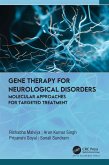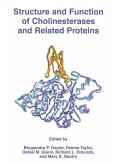In recent years, significant gains have been made in the cloning and identification of numerous genes that produce neurobehavioral disorders, as well as in the ability of neuropsychological tests to accurately assess and evaluate cognitive deficits and behavioral dysfunction. In Genetics and Genomics of Neurobehavioral Disorders, a panel of leading researchers draws on this new knowledge to provide a clear and comprehensive account of how genetic abnormalities, neurobiology, and neuropsychology work together to manifest cognitive-behavioral dysfunction. The authors review the current status of research in autosomal disorders that produce such dysfunctions, examining both microdeletion disorders (Prader-Willi syndrome/Angelman syndrome, deletion 22q11, and Williams syndrome) and syndromes arising from microdeletions and sequence variants, among them neurofibromatosis (NF1 and NF2), tuberous sclerosis (TSC1 and TSC2), and myotonic dystrophy. X-linked disorders producing mental retardation in syndromal disorders (ATRX, Rett, and fragile X) and nonsyndromal disorders (FRAXE and MRX) are also discussed. An insightful introduction surveys the history of neurobehavioral disorders, the establishment of relationships between genetic and cognitive impairment, the relationship between neurobiology and behavior, recent advances in neurogenomics, and the use of animal models for complex human disorders and cognitive impairment. Comprehensive and up-to-date, Genetics and Genomics of Neurobehavioral Disorders integrates the molecular, genomic, neuropsychological, and neurobehavioral factors that produce learning disabilities and mental retardation into a coherent framework for the understanding and assessment of neurobehavioral disorders.
Dieser Download kann aus rechtlichen Gründen nur mit Rechnungsadresse in A, B, BG, CY, CZ, D, DK, EW, E, FIN, F, GR, HR, H, IRL, I, LT, L, LR, M, NL, PL, P, R, S, SLO, SK ausgeliefert werden.
"this book brings together research from neuroscience, genetics, and psychology in a concise and unique way. This type of synthesis is sorely needed as we struggle to understand the complexities of human brain function and dysfunction. It is a valuable contribution to these fields as is, and it is exciting to speculate what future editions will contain. "-Doody's Health Sciences Book Review Journal
"...Gene Fisch has edited a remarkable volume...I highly recommend this book for clinicians, researchers, and students interested in neurodevelopmental disorders." - Human Genetics
"...a comprehensive and highly accessible review of this enormously interesting body of work...a highly readable and thought-provoking volume." - J. AM. ACAD. CHILD ADOLESC. PSYCHIATRY
"...a useful update on behavioral phenotypes for which the neurobiological substrates are beginning to reveal their secrets." - Association for Child Psychology
"...a useful update on behavioral phenotypes for which the neurobiological substrates are beginning to reveal their secrets." - Journal of Child Psychology and Psychiatry
"...Gene Fisch has edited a remarkable volume...I highly recommend this book for clinicians, researchers, and students interested in neurodevelopmental disorders." - Human Genetics
"...a comprehensive and highly accessible review of this enormously interesting body of work...a highly readable and thought-provoking volume." - J. AM. ACAD. CHILD ADOLESC. PSYCHIATRY
"...a useful update on behavioral phenotypes for which the neurobiological substrates are beginning to reveal their secrets." - Association for Child Psychology
"...a useful update on behavioral phenotypes for which the neurobiological substrates are beginning to reveal their secrets." - Journal of Child Psychology and Psychiatry









